Partnerships
Partnerships
Janssen's activities in Belgium cover a number of areas. Research and development, setting up clinical studies, production, and distribution, making our treatments accessible and improving care... We have each step of the value chain in-house. In practice, this translates into numerous partnerships and continuous dialogue.
Our strategic collaborations and partnerships within the Life Sciences ecosystem are focused on continuous innovation in Belgium. We work together with universities, research institutions and hospitals, participate in public-private partnerships and stimulate innovative start-ups and scale-ups. Furthermore, we also enter into dialogue with healthcare professionals, governments and policy makers to bring our innovations to the patient and to guarantee the accessibility and affordability of healthcare.
Together with all these actors, we work on various themes such as the early translation or support of innovative ideas into start-ups, the stimulation of new therapeutic developments such as cell and gene therapy and the preparation for certain important evolutions such as home care. We are looking at technological developments such as wearables and apps to better monitor patients from a distance. With the increasing digitization of the care process, we are increasingly able to make information transparent. Think of the interpretation of personal health data that allows us to detect diseases earlier. Moreover, based on artificial intelligence, we can also identify major trends. This is an important evolution that will lead to even better prevention and early detection, more targeted diagnostics and personalized treatments. In short: scientific and technological progress requires adjustments to the system, and it is our task to realize this revolution together with other actors within the healthcare system.
In addition to working on concrete solutions for healthcare, we work intensively with other companies, NGOs, governments and schools on broad social themes. One such theme is girls in STEM ('Science Technology Engineering & Mathematics'), where we join forces in a broad consortium called 'Da's Geniaal'. This consortium includes eighteen Belgian companies and organizations that want to inspire children and young people between ten and fourteen years old around STEM. They introduce children, parents, and teachers to real 'STEM heroes': people who work in a STEM profession and inspire young people.

Partnerships throughout the entire value chain
At Janssen, we are convinced that cooperation is the key to solving all these future challenges. As a global health company, we are proud to be an important part of the Belgian Life Sciences ecosystem in which each player has its own and unique role. Our country is often described as the pharma valley because, despite its modest size, it houses the entire biopharmaceutical value chain, thanks in part to the presence of companies such as Janssen. This makes Belgium a pioneer in the field of innovation. This was recently confirmed in the context of the European Innovation Scoreboard 2021, where Belgium was crowned as one of the Innovation Leaders.1 According to this report, two of the key explanations are the attraction of (foreign) talent and the high level of investment in R&D. It is crucial that, as a country, we continue to support and attract innovation so that we can maintain our leading role within the European Union.
Within the strong Life Sciences ecosystem, there is a wide variety of public and private parties with which to collaborate. These include physicians and care providers, hospitals, patient organizations, universities, research institutions, start-ups and scale-ups, established companies, governments and policy makers. Janssen's ambition is to maintain and further develop sustainable relations with its partners throughout the entire value chain. In order to make a relevant contribution to improving the health of patients and the resilience of our society as a whole, we actively seek out these partnerships and invest heavily in the high-quality Belgian Life Sciences ecosystem. Together, we think about the ways in which we can deploy innovative solutions or new techniques in the future throughout the entire production process, from the laboratory to the patient. We do this to achieve a resilient and efficient healthcare system. This is the core of our vision and we do this in various ways.
Our collaboration with academic institutions
A crucial part of our innovation model is the close cooperation with teaching hospitals, universities and research institutions. We have signed innovation charters with several of these partners. An innovation charter is part of an initiative to exchange more knowledge and expertise, stimulate scientific talent and bring innovative developments to the patient faster. For example, we continue to focus on innovation in the design and execution of clinical studies, we stimulate research into cancer and nanomedicines, we focus on smart production methods and we use data sciences and artificial intelligence in scientific research in order to improve the patient’s care pathway, among other things.
“We need each other in order to achieve the best results. We are all elements of one big puzzle.”

Werner Verbiest
Strategic Alliance Manager

Promoting precision medicine through collaboration
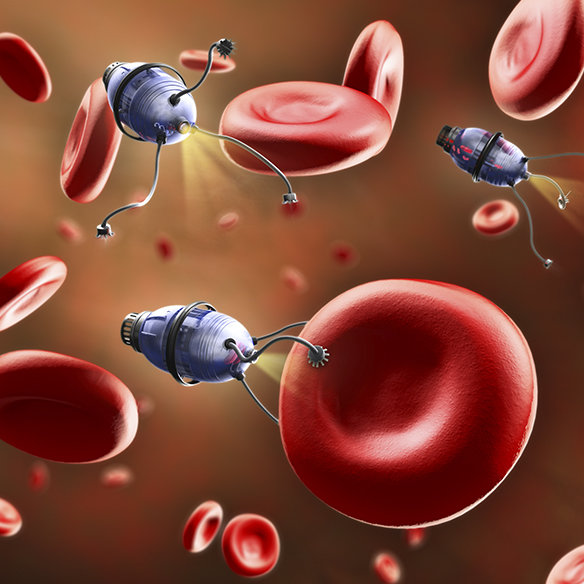
Promoting precision medicine through collaboration
Together with imec, an innovative R&D hub specializing in nano and digital strategies, we have concluded a strategic partnership around precision medicine. We are investigating how nanoelectronics - consisting of very small parts such as chips and sensors, for example - can accelerate the development of solutions within this domain. For example, nanoelectronics can play a crucial role in making existing devices such as micro- and spectroscopes smaller without sacrificing quality. Chips and biosensors could also tremendously speed up existing lab functionalities such as blood analysis to help patients faster. Precision medicine tries to intercept or even prevent diseases faster and focuses on very targeted diagnostics at an early stage. In other words, this fits in with the current trend towards more personalized medicine: treatments that are completely tailored to the patient.

PH HUMAN App
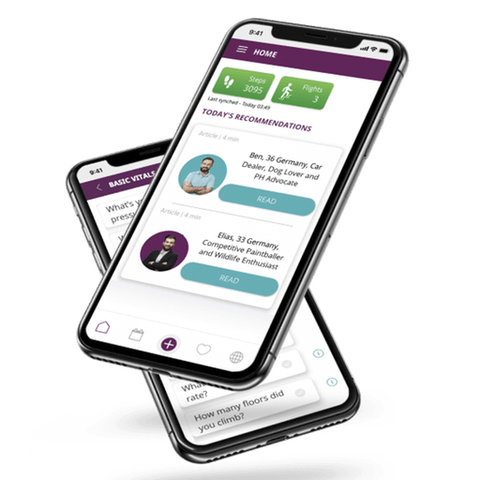
PH HUMAN App
People with pulmonary arterial hypertension (PAH) face daily health challenges (such as sudden shortness of breath), unfortunately, exacerbated by the COVID-19 pandemic. Through the PH HUMAN app, developed by Janssen, appropriate remote care becomes possible, allowing patients to receive personalized care when they need it. Even in their safe home environment! Patients record symptoms, lifestyle information and quality of life, and can then share this with their healthcare providers to better prepare and thus improve consultations. Because this is a rare disease, often difficult to manage, these insights are extremely valuable. Patients thus receive support that is tailored to their needs, giving them more control and autonomy over their own health.

Innovative Medicines Initiative, partnership at the European level
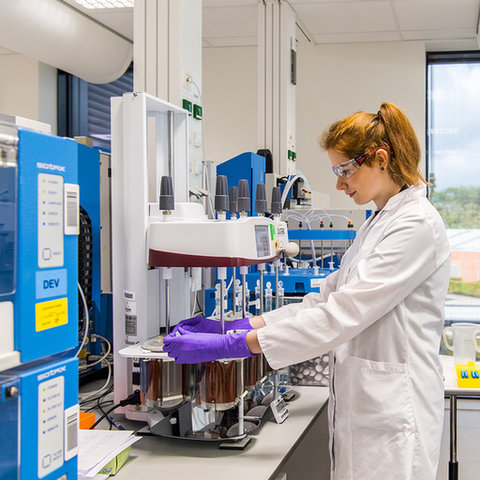
Innovative Medicines Initiative, partnership at the European level
Working together takes research further. That is the idea behind the European Innovative Medicines Initiative ("IMI"). The IMI was established in 2008 by the European Commission and the European Federation of Pharmaceutical Industries and Associations. On the one hand, it aims to create stronger collaboration between industry, academia, biotech companies, governments, patient organizations and NGOs. On the other hand, the initiative also aims to provide additional incentives for innovation in healthcare and to take it to the next level. Within the current IMI project, Janssen is contributing to the research into neurodegenerative diseases. These are incurable diseases that result in the death of nerve cells, leading to problems with movement and mental functioning - as in the case of dementia. Knowledge is also shared around vaccines, for example in relation to Ebola, diabetes and immunological diseases.
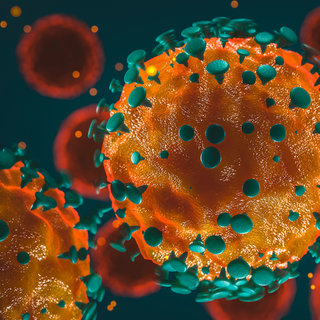
COVID-19: CARE Consortium
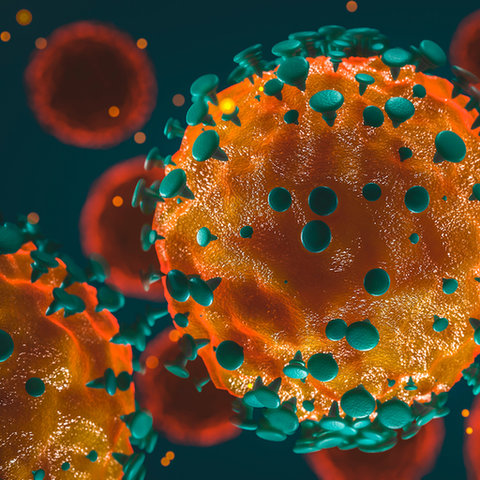
COVID-19: CARE Consortium
Collaboration is central to the CARE Consortium (Corona Accelerated R&D in Europe), of which Janssen is a co-initiator. CARE brings together scientists from no fewer than 37 universities, research institutes and large and small pharmaceutical companies to work on possible solutions for COVID-19, with the support of the European Innovative Medicines Initiative. Under the co-leadership of Marnix Van Loock, Janssen Global Public Health, we are looking at the possibility of using existing medicines in the context of the corona pandemic. In addition, through further research, we want to understand the disease better so that we can also develop new medicines against COVID-19, but also against other coronaviruses that may pose a health risk in the future.

Werner Verbiest: "Janssen as connector"

“We need each other in order to achieve the best results. We are all elements of one big puzzle.”
Werner Verbiest has been responsible for strategic alliances and partnerships at Janssen in Belgium since 2019. His daily focus is on long-term collaborations that shape the care of the future.
'We are the bridge builder between research institutions, hospitals, and universities. Janssen works together with all these parties because we all have the same goal: to help and cure patients and, where possible, to prevent people from becoming ill. We need each other in order to achieve the best results, and we stimulate the connection between all of these researchers, both internally and externally. We are all elements of one big puzzle.
Therefore, with our strategic partnerships, we try to create what we call a "collaborative environment." These are collaborations in which we dare to look far ahead on themes that are aimed at maintaining and strengthening a lively and innovative ecosystem in Belgium. Examples include the attraction of new talent and the increasing digitalization of healthcare, but also the development of new technology platforms such as gene therapy and CAR-T cell therapy. Janssen is very active in this area, but the same applies to research institutions, academic players, and other parties within the healthcare system. We are therefore trying to organize the collaboration in such a way that we can continue to learn from these parties, and they can also learn from us. Such a pre-competitive and learning environment can stimulate innovation enormously.
These challenges are often impossible to solve in the short term, but that is precisely what makes it so fascinating. It ranges from legislation and policy to the implementation of knowledge in universities and education. It is therefore very multidisciplinary. My ambition is to bring together experts from various disciplines to jointly achieve a so-called 'Life Sciences ecosystem' that is supported by everyone, where innovation is encouraged and valued, and where healthcare remains accessible and affordable. In this way, I hope to be able to make an important contribution to what healthcare and innovation will look like in the next 15 years - that we create an environment now in which researchers and doctors can bring the right therapeutic solutions to patients in the years to come. Because if the government and researchers in industry and academia really work together, we can have an even greater positive impact on the lives of patients and their families.''
JLABS, our incubator for start-ups
Belgium also has a wealth of biotech start-ups. JLABS is one of our ways of stimulating this innovation in the field. JLABS is a network of open innovation incubators for health sciences, offering start-ups active in this field access to the tools they need to take their ideas from concept to commercialization. In doing so, our employees support innovators in the life sciences sector and remove obstacles for them by improving access to infrastructure, the scientific community and specialized expertise. JLABS now has a total of 12 locations, each with a diverse range of state-of-the-art equipment, prototype labs and a year-long curriculum for innovators focused on commercial and business development. Our site in Beerse hosts “JLABS@BE”, the first European branch within the network JLABS is a "no-strings-attached" model, which means that entrepreneurs are free to develop their science while maintaining their intellectual property. You will also find examples of our collaboration with innovative start-ups in Chapter 5 in the context of the circular economy.
Our consultation model with governments
The increase in the number of chronically ill people, an increased focus on preventive care, the importance of integrated and multidisciplinary care pathways, digitization and care at a distance, the arrival of new cell and gene therapies, ... Our healthcare system faces a number of major challenges in the coming years. The accessibility and affordability of our healthcare system are major concerns for Janssen, and we believe that it is the joint task of all actors within the healthcare system to formulate answers to these issues. Our company is therefore in favor of a consultation model with governments and policymakers on certain healthcare-related social issues. You can read more about this in chapters 6and 8.
